The Mac malware problem is bigger than you think

Take a long hard, really hard, look at the above chart, which Craig Schmugar posted today at the McAfee Labs blog. Look at the dramatic increase, basically from none, in "rogue" malware (e.g., fake security software) during May.
He asks: "Is this merely a short-term blip on the radar or the beginnings of a trend for Mac threats? Time will tell." Lots of people are asking that question. The answer is easy. It's yes, if there's ongoing money for malware writers to make and no if there isn't.
Why can you download Office for Mac 2011 from Amazon but not Apple?
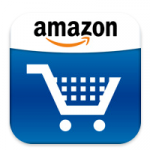
If you've seen Amazon's new Mac Software Downloads store it's the question to ask. Amazon offers digital downloads from the Mac's two largest developers, Adobe and Microsoft. Apple does not. Well, Windows Phone 7 Connector is available from Apple's shop. But, hey, where's Microsoft Office?
Perhaps the answer to that question will come next month during Apple's Worldwide Developer Conference, where Mac OS X 10.7 "Lion" takes center stage. The Mac App Store, which debuted in January as an add-on to v10.6 "Snow Leopard," will be built into Lion.
Five things you need to know about Mac security

The Mac Defender outbreak has stirred much debate about the state of Mac security and whether or not a malware deluge is headed for Apple computers. However, the nuances of the problem, if there really is one long term, are more complex than the majority of blog posts or news reports indicate. It's wrong to wholly, or even largely, assume that increasing Mac install base is reason for Mac Defender and other malware to follow.
I present five things you need to know about the state of Mac security, in no order of importance. All five matter.
Can it be 8 out of 10 Mac owners don't use anti-malware software?
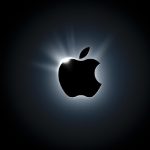
That's the early result of our two separate polls asking Macintosh and Windows PC users whether anti-malware software is installed on their primary home computers. What's most interesting: About as many -- 8 out of 10 -- Windows PC users have anti-malware software installed.
I don't consider the findings exact but they are directional -- as in good enough for identifying trends. Respondents aren't qualified, meaning there's nothing to confirm they are Mac or Windows users. Additionally, the questions specifically ask about primary home PCs, which don't account for work computers or multiple machines at residence. Finally, as I write number of respondents is still small -- 224 respondents about Macs and 361 for Windows PCs. Given that Betanews readers are a more technical lot, I find the poll results to be interesting.
This Mac malware thing is really scary now

It's time for Windows PC users to start a support group for their Mac friends. You know their pain -- clicking a link sent by email or instant message or simply visiting a website, and WHAM! You've got a virus, downloaded and installed with no administrator password required.
Uh-oh. The malware ghetto is coming to the Mac, where street gangs and thieves overrun the once pretty manicured neighborhood. Mac users, you may need to bar the windows and lock the doors. Uh, first install locks on the doors.
Do you want the skinny on Windows Phone 'Mango' development tools? (video)

The sad reality is this: Public relations people outnumber journalists, and companies like Microsoft resort to giving more access to PR staff than they do us. Why not, particularly for interviews? The internal company interviewer takes full control of the messaging and keeps it on point. I don't like the approach, but that doesn't mean every interview is devoid of value.
The one above is good example, where Microsoft's Brandon Watson interviews Microsoft's Andrew Clinick about Mango development tools from a platform perspective. The video is one of a series. Also available: Mango development tools related to search and communications.
Apple finally admits Mac Defender malware is for real

That sure took long enough. After reports surfaced last week about Apple's denial, the company has come clean in a support document. Mac Defender is real malware targeting Mac OS X, and Apple will issue an update to plug the hole. Yes, but will it be little more than a finger in the dike?
The answer to that question has already generated fierce debate among Mac defenders -- not the malware, but Apple fans -- and PC stalwarts about whether Mac Defender is start of a troubling trend: Increased number of attacks against Mac OS X. The Mac defenders brush off Mac Defender, arguing there is no OS security problem but one of social engineering. It's a bogus argument, considering social engineering also is the main mechanism by which malware infects PCs. According to research released last week by Microsoft, 1 in 14 programs that are downloaded are later determined to be malware, and in most cases, the malicious software was installed by good old-fashioned social engineering.
A mini review of Opera Mini 6 for iPad

Opera fans command reverence and loyalty that even Apple must be jealous of. Opera has survived just about every conceivable market share abuse -- from Internet Explorer's crushing monopolistic dominance to wily new competitors like Chrome and Safari -- and loyal fans are major reason. Well, they, and Opera pushing new features at rapid pace. But competitors are imitating Opera's development innovation, too.
It's with this mindset that I set out to give Opera mini 6 for iPad a hard lookover late today. Little more than a year has passed since the browser released for iPhone, quickly achieving 1 million downloads. Clearly somebody wanted an alternative to Apple's WebKit-based Safari browser. Opera mini 6 released today -- for iPhone with updated features (such as support for retina display) and for iPad, supporting the larger screen size. I tested the software on a 64GB WiFi iPad 2.
In the battle of mobile apps, it's Apple's 500,000 to Microsoft's 18,000

Today, Andy Lees, president of Microsoft's Windows Phone division, boasted about 18,000 applications in 7 months. He can only wish for this kind of future: 500,000 applications approved to Apple's iOS app store in about three years. This isn't even a fair fight. The elephant in the room could squash the mouse just too easily.
But there is hope for Microsoft. Apple crossed the 10,000 apps threshold four months after App Store launched. The number of Windows Phone apps is about the same as iOS apps during similar timeframe from store launch. So maybe there's more to Lees' boasting, if Microsoft is using Apple's success as measure of one possible Windows Phone future.
See Windows Phone 7.5 'Mango' in action (video)

Did you miss today's Windows Phone VIP event, where Microsoft showcased upcoming features for "Mango," codename for the next version? We've got you covered -- as does Microsoft. In the video, Joe Belfiore, Microsoft's corporate vice president for Windows Phone, highlights some of the exciting new features coming in Windows 7.5.
The strong undercurrent of Belfiore's Mango introduction is Microsoft's "glance and go" philosophy -- the idea being: The smartphone shouldn't be the center of your life, but instead enable you to live better. Related:
Nokia will ship Windows Phone 'Mango' but not this year
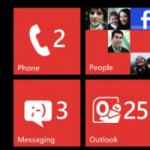
During today's Windows Phone 7.5 'Mango' live preview event, Microsoft Windows Phone division president Andy Lees reveals that the first handsets from the Nokia partnership will run the operating system. That might suggest to some people that the first Nokia Windows Phone handsets will ship this year, since the operating system is scheduled to. That's not what he says.
Nokia timing is something Microsoft developers, OEM partners, customers, investors and watchers are looking for. Previously, the company indicated that the first Nokia Windows Phone handsets wouldn't release until 2012. There is nothing in today's announcement to suggest that anything has changed.
Windows Phone 7.5 'Mango': Big on promises, not on apps
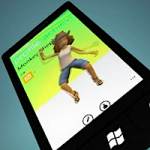
Microsoft is hosting a live media right now for the next version of Windows Phone, codename "Mango." Yesterday, Microsoft CEO Steve Ballmer leaked name Windows Phone 7.5 during a speech in Japan. The update will be free when available later this year.
Today, Microsoft revealed 18,000 apps are available for Windows Phone 7, which launched in autumn 2010. The number pales in comparison to either the Android or Apple iOS app stores. No doubt, many Android and Mac sites will laugh off the paltry showing by comparison. But Microsoft is focused more on quality than quantity of apps with a specific design goal -- "glance and go." Let people get the information needed to live rather than be consumed by their smartphones.
Yahoo Mail puts final touches on the big makeover
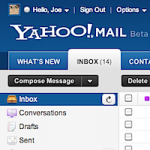
Yahoo Mail is coming out of beta over the next couple of weeks, Yahoo announced today at the Witching Hour. I'm scratching my head asking "Why tell us today, if it's rolling out in weeks?" The whiles of public relations timing stymies me.
The new service, which started beta testing in October, will be available to 284 million users in 43 markets and 26 languages. "This is the largest redesign of Yahoo Mail in six years, and we rebuilt it with a focus on performance to make it at least 2x faster than previous versions," according to a post on the company's Yodel Anecdotal blog. "In addition, we upgraded our spam technology to ensure that you aren't receiving unwanted messages. Did you know that Yahoo! Mail already blocks more than 550 billion spam messages per month?"
With Mac OS X Lion coming this summer, is 2012 too late for Windows 8?
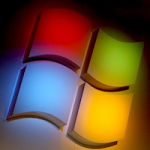
Microsoft CEO Steve Ballmer has let the cat out of the bag -- again. Microsoft's biggest breacher of new product information calls the next big operating system "Windows 8" and reveals that it's coming "next year." Ballmer has done this kind of thing before, causing massive, collective PR staff heart failure and rapid response along the lines: "that's not what he meant." I wonder what the excuse for Ballmer's big mouth will be this time.
Ballmer made the missives rather oft-handely earlier today to Microsoft Developer Forum attendees in Tokyo. In context, he speaks about the present: "We're obviously hard at work on the next version of Windows. Windows 7 PCs will sell over 350 million units this year. We've done a lot in Windows 7 to improve customer satisfaction. We have a brand new user interface. We've added touch, and ink, and speech."
Will Steven Sinofsky break the Windows 8 silence?
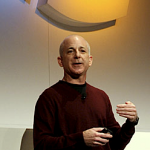
Just eight days before the D9 conference kicks off in Rancho Palo Verdes, Calif., Steven Sinofsky, Microsoft Windows & Windows Live president, has agreed to participate. Talk about booking gigs at the last minute. Speakers for a conference of this calibre typically book many months in advance. Could it be Sinofsky has something important to say about Windows 8?
Microsoft already is gearing up for the operating system's launch. Today, in remarks made during the Microsoft Developer Forum in Tokyo, CEO Steve Ballmer described the next version as "Windows 8." Ballmer told attendees: "As we look forward to the next generation of Windows systems, which will come out next year, there's a whole lot more coming. As we progress through the year, you ought to expect to hear a lot about Windows 8. Windows 8 slates, tablets, PCs, a variety of different form factors."
Joe's Bio
Joe Wilcox is BetaNews executive editor. His motto: Change the rules. Joe is a former CNET News staff writer, JupiterResearch senior analyst, and Ziff Davis Enterprise Microsoft Watch editor.
Ethics Statement© 1998-2025 BetaNews, Inc. All Rights Reserved. Privacy Policy - Cookie Policy.
